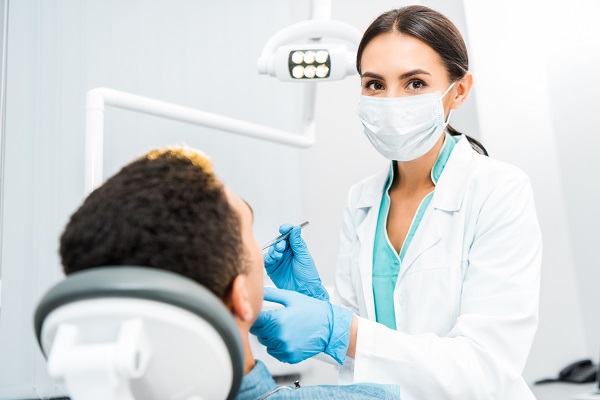Tips From a General Dentist: How to Make a Speedy Recovery After Oral Surgery

Following oral surgery, a priority of any patient is a quick and comfortable recovery. Patients naturally want to know what to do to recover fast. Healing depends on the type of surgery and the patient. However, steps can be taken to help it happen more quickly.
Speeding up the recovery
To heal soon, the goal should be to prevent infection and minimize the swelling, pain and bleeding. To that end, there are simple steps you can take to accomplish this.
Resting
Plan on spending the next 48 hours resting after the surgery. Use some extra pillows to keep the head elevated when laying down or at bedtime. Avoid strenuous activities or heavy lifting as they can precipitate bleeding by causing blood flow to increase and the blood clots to dislodge.
Bleeding
When bleeding occurs after oral surgery, bite down on gauze with firm pressure for about an hour. Remove the gauze gently to prevent bleeding from reoccurring. It may be necessary to moisten the gauze by taking a sip of water before pulling it away from the tissue. Biting on a moistened tea bag for 30 minutes may also help as the tannic acid in the tea has been shown to help with clotting.
Swelling
After surgery, swelling can be minimized by pressing an ice pack against the cheek for 15 minutes on and 15 minutes off while awake. If surgery was done on both sides of the face, use the same pack alternating from side to side every 15 minutes.
Diet
Immediately after the surgery, rely on soft foods, soups, puddings, gelatins and liquids and avoid solid foods. Do not suck on a straw when drinking liquids. This helps prevent the blood clots from getting dislodged and causing bleeding.
Medications
Depending on the type of surgery, pain medications may be prescribed. Follow the directions for the medications carefully. If antibiotics are prescribed, take them as directed to prevent infection. If asked to stop taking certain prescribed medications before the surgery, ask the dentist how soon to restart them after the surgery, especially if taking blood thinners.
Oral hygiene
Brushing and flossing should be done gently while avoiding vigorous rinsing or spitting. Rinse lightly with water, allowing the water to fall out of the mouth on its own. After 24 hours, a warm saltwater solution may be used after every meal and snack to keep the surgical area clean.
After an extraction, do not attempt to remove food particles that fall onto the tooth socket with a toothpick or similar objects. Rinse gently with water until the particles dislodge from the site.
Tobacco
Wait at least 24 hours after the surgery to smoke a cigarette and do not chew tobacco until the healing is complete. Tobacco can delay healing and cause infection.
Conclusion
Having to undergo oral surgery is not an experience most look forward to. However, taking the necessary steps to prevent infections and minimize discomfort can hasten recovery.
Are you considering oral surgery in the Dallas area? Get more information at https://www.highlandsdentaldallas.com.
Check out what others are saying about our services on Yelp: Read our Yelp reviews.
Related Posts
Dental crowns are supposed to last forever, right? In the right set of circumstances, they could. Some crowns will last several decades while others will last a lifetime. Then there is the dental crown that comes loose for one reason or another. A loose crown means that a trip to the dentist is in the…
Extensive tooth loss can impact your oral health and quality of life. Fortunately, all-on-4 dental implants offer a reliable foundation for a renewed smile that supports your oral health and overall well-being. This innovative technique provides a stable, long-lasting solution for those who have lost most or all of their teeth and are looking for…
Dental crowns are a great way to restore the health and appearance of your smile after oral health issues develop. Dental crowns work by surrounding a vulnerable or damaged tooth and offering protection from further damage. Crowns may also be used for teeth replacement purposes as well.Several of the more common oral health issues that…
A dental crown and veneers are common dental treatments for restoring the appearance and functionality of your teeth. They can be used to restore damaged teeth and achieve a perfect smile depending on your dental condition. Although both dental crowns and veneers are useful tooth restoration options, the purpose, structure, and functionality of each differ.A…
